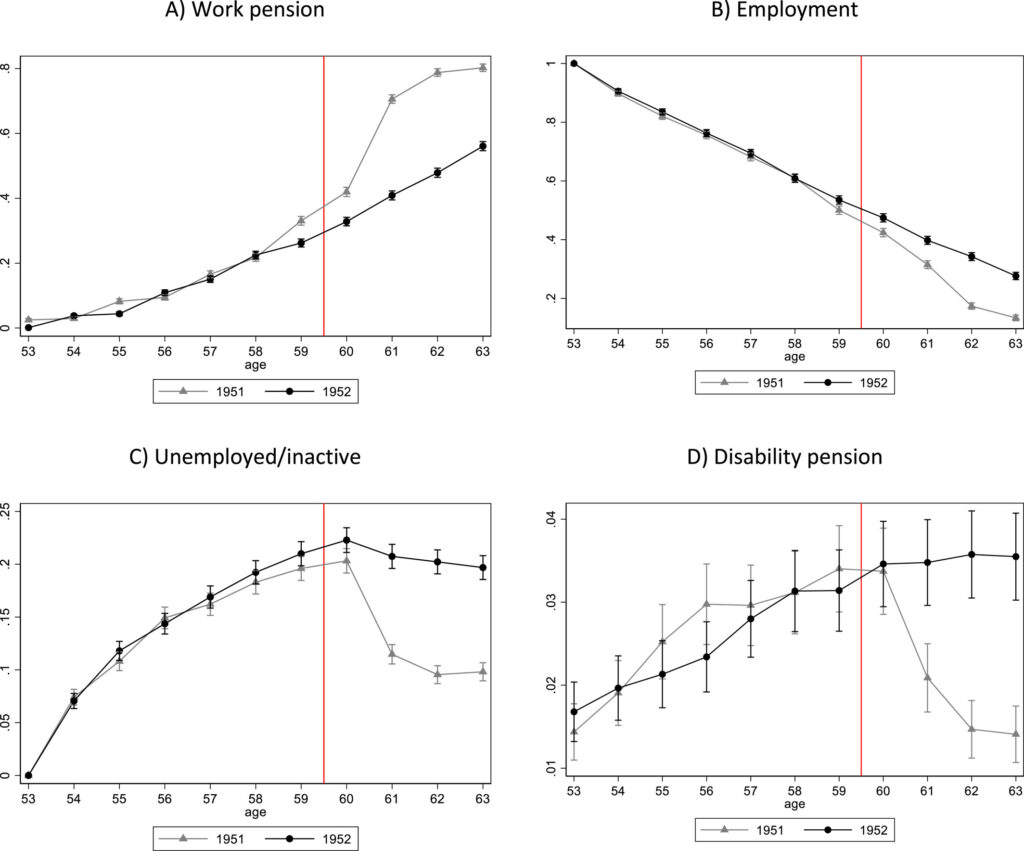As individuals live longer, governments and employers are considering increasing the age at which individuals become eligible for either public or private pensions (e.g., Social Security). Why this fiscal impacts of changing the retirement age has been well-studied, the labor market and health outcomes are less well-known.
A paper by Serrano-Alarcón et al. (2023) examines the impact of pension reform in Italy. Italy has a public pension system that is financed using a (PAYGO) mechanism. Income replacement rates historically have been 77%. A 2012 pension reform increased the retirement age, such that all individuals had a statutory pension age of 67. This policy lead to an increase in the retirement age by 7 years (60–67) for women and 2 years (65–67) for men.
The authors use data from WHIP—Health is based on the Work Histories Italian Panel (WHIP), a database of individual work histories derived from a random sample of individuals insured by the Italian social security administration (INPS). The WHIP-Health data are then linked to data on public and private hospital discharges from the National Archive of Hospital Discharges. The authors’ empirical strategy compares neighboring cohorts who were differently affected by the reform due to the increase in the statutory pension age (old-age pension). For instance, “women born in 1951 were eligible for retirement under the statutory pension age in 2011 by the age of 60…[but] women born in 1952 were only eligible for claiming a pension from 2015 at the earliest, when turning 63.”
Using this approach, the authors find that:
Among women only, the reform also increased sick leave and hospitalizations related to mental health and injuries. These effects were driven by women with previously low health status, suggesting that undifferentiated and abrupt increases in pension age might harm more vulnerable workers. Coherently with the milder tightening of retirement age experienced by men, labor market responses were smaller in size, and they did not suffer any significant health effects.

You can read the full paper here.